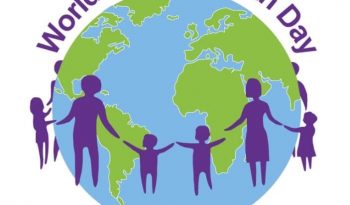Today is World Mental Health Day. Many people are sharing their stories about the reality of living with mental health. Why is this important? Because by sharing our stories and uniting our voices we can be the change needed to make sure that people and families affected get the help and support they need.
For me personally being able to speak out and not be ashamed to admit that I have suffered is very important. For a long time, I felt I couldn’t speak out, silenced not only by my own fears and doubts but those around me.
Birth trauma sadly affects many women and their partners, however, there can be a silencing of birth trauma that makes those affected feel they should get over it. After all, isn’t the birth of a baby a happy joyous event? To admit that they are struggling after a difficult birth, that they feel overwhelmed or have feelings of grief, anger or sadness can be hard.
If one ever acknowledges what we have been through, it is like it has never happened. This was definitely true for me. My family, friends and those who cared for me after the birth never once asked if I was ok, despite all that we had been through. When the fact that I was struggling was just not acknowledged it led me to believe that I should try to forget it, be grateful myself and my baby were alive and not complain or make a fuss. However, this led to me trying to bury feelings that couldn’t be wiped away.
As time passed my trauma and the inability to talk about what I was feeling and struggling with led to me developing Perinatal PTSD. Yet it took many years to actually get a diagnosis, instead, I was passed around from person to person, service to service and offered treatments that didn’t help because they weren’t for PTSD. The more people I saw, the more treatments I had that didn’t help, the more I believed I was deflective and weak, the problem was me! The problem wasn’t ‘me’ I was instead that I wasn’t being given the right therapy to get well.
It is important too that we truly listen to those who are struggling with their mental health. When I tried with one counsellor to talk about my birth experience she told me to ‘let it go’, to try to concentrate on now and that we were alive. Oh, how I wished I could. Instead, images haunted my mind, anxiety ravaged my body and I became a ghost, a mere shadow of who I used to be. I needed to be heard and given a safe space to talk, grieve and understand what had happened and why.
Perinatal PTSD stole a lot of my life, it has also affected my parenting and intimately my children. If just one person had acknowledged the horror I had endured, If one person had listened sooner, if one person had said what happened to you mattered, instead of making me feel bad for not ‘getting over’ it, maybe I would have recovered sooner.
My battle to get a diagnosis and treatment has driven me to try and raise awareness of the impact a traumatic birth can have on families and their mental well-being. That PTSD can result from birth, a difficult pregnancy or a baby in neonatal and as such families need support.
Every day I fight to get families the help they need both in maternity and mental health services.
Every day I will speak up for those who have suffered birth trauma.
Every day I will lift my voice and hope that people listen about PTSD and the devastation it causes.
No one should struggle to access support for their mental health, instead, it must be as important as any physical illness. We cannot afford to ignore perinatal mental health because the impact on children, families and communities is huge. But more than that it is the impact it has on the individuals whose lives it rips apart, whose memories it steals and hearts it breaks.
This morning as I rushed out the door I glanced at the picture on my wall of my two beautiful girls and the tears filled my eyes. I was let down by those who I needed to help me. Yet I know that in reality, it was not their fault, but the fault of a system that lacks correct training, services and therapies. The fault lies in making mothers feel that bringing home a healthy baby is all that matters.
Things are improving with more speaking out and sharing their experiences. I hope that in time there will be greater awareness and support, especially around how trauma in general is tied in with mental health. I’m lucky because I get to offer the support I never had to the families I now care for. To provide that safe space and the strategies they need to help them to recover.
Mental health matters, it matters because it affects each and every one of us. So today World Mental Health Day, look at those brave enough to share their stories, real people who struggle every day and remember that sometimes all they need is for you to listen, because in doing so you can make a world of difference.

